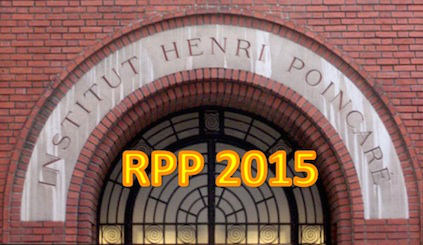Orateur
Description
Summary
We discuss our recently developed variant of the so-called optimized perturbation (OPT), 'RGOPT', consistently resumming renormalization group dependence generically for zero or finite temperature theories. It is illustrated with a rather precise determination of 1) the QCD basic scale and coupling from the pion decay constant $F_\pi$: $\alpha_S(m_Z)[\overline{MS}] \simeq 0.1174 \pm 0.002$;
2) the quark condensate $<\bar q q>$ in the chiral limit.
3) At finite temperature the pressure for the illustrative $\phi^4$ model is calculated to second (modified perturbation) order.
Our method and results differ sharply from other similar resummation approaches, in particular the notoriously bad stability and scale dependence of thermal perturbative expansions for moderately large coupling is shown to drastically improve, with anticipated similar properties in thermal QCD.
